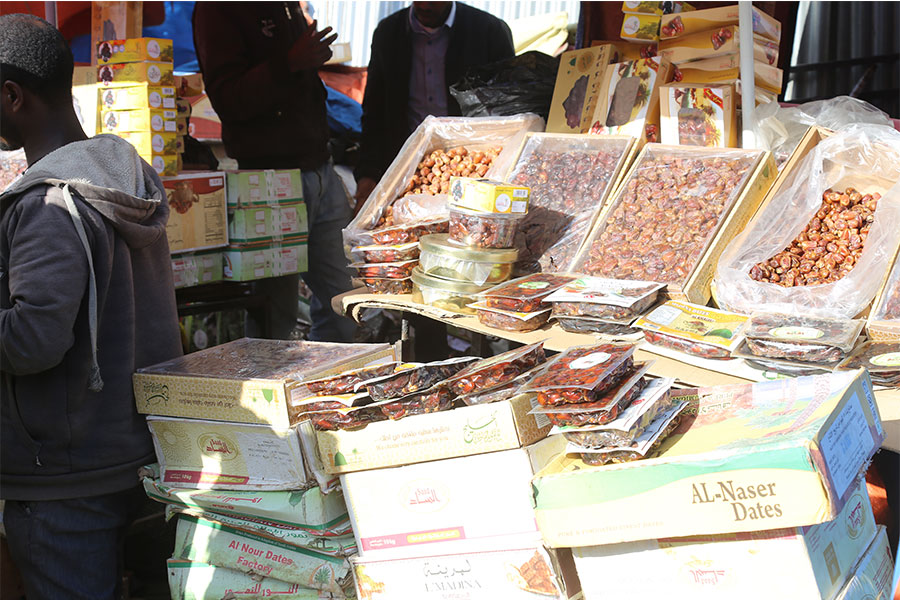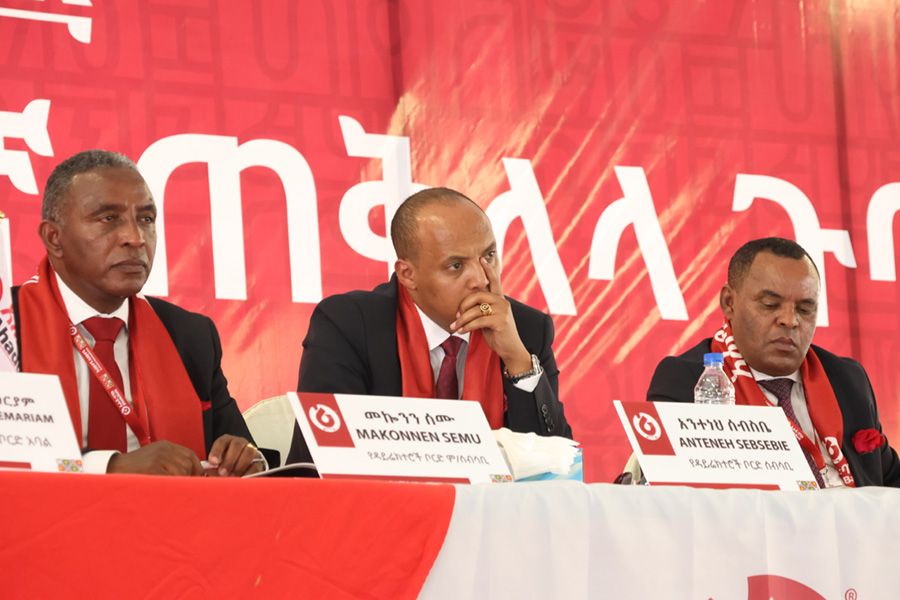
Money Market Watch | Apr 13,2025
The recent repeal of a 55pc foreign currency allowance for raw material imports has disrupted the pharmaceutical sector, leading to operational issues and heightened uncertainty. The move aligns with the government’s ongoing macroeconomic reforms and foreign exchange market liberalisation but has sparked an immediate backlash from industry leaders who cite forex shortages and an uneven playing field in the supply chain.
Last week, the Ethiopian Pharmaceutical Supply Service (EPSS) issued a new tender requiring local manufacturers to quote prices in Birr, while foreign suppliers may continue quoting in convertible currencies. Local manufacturers argue this requirement puts them at a disadvantage, especially as delays and complications in foreign exchange availability strain their operations.
Daniel Woktole, head of the Association, stated that while reform has generally been beneficial, recent adjustments are straining cash flows. He said the current scheme requires commercial banks to hold equivalent reserves when issuing letters of credit, delaying foreign exchange availability and tightening manufacturers' working capital.
"This will rip through manufacturers' working capital," he said.
Delays in foreign exchange availability have also been disrupting delivery timelines.
Ethiopian Bankers Association (EBA) executives note that banks have used a prudent strategy in their negotiation with importers. Demissew Kassa, secretary general, stated that banks have stopped entertaining suppliers’ credit due to previous glitches where importers delay payments, putting depositors' money at risk.
"This was not a profitable undertaking for banks," he said.
The 13-year-old pharmaceutical company, Julphar plc, echoes a different side of fear. It operates on a manufacturing plant spread over 3,000Sqm plot in the capital, around Jakros, with expansion plans of 11,000Sqm.
Kedir Sherif, country director at Julphar, stresses the need for foreign currency to import raw materials, acknowledging the policy measure that had revived the beleaguered sector. He expressed concern that the exchange rate volatility could lead to additional payments to commercial banks during the LC clearance process.
Last year, the company won a 15-million-Br bid with a dollar-denominated procurement allotment of 700,000 dollars for the procurement of raw materials to supply three kinds of medicines, syrup, ointment and tablets. He argues that reinstating the 55pc foreign exchange settlement or implementing a hedging policy is crucial for the survival of pharmaceutical manufacturers. Unless so, participation in upcoming bids is diminished.
Pharmaceutical manufacturers gained relief from their foreign exchange woes last year. Eyob Tekalign (PhD), state minister for Finance, set up the scheme which allotted pharma manufacturers up to 55pc forex allocation when bidding on EPSS tenders. It was an attempt to ease the operational difficulties they faced due to the prevailing foreign currency crunch, which was severely impacting their production and the broader health sector.
The measure eased the process for manufacturers as they could propose up to 55pc of their cost in foreign currency when they enter into an agreement to supply the state-owned Service. The scheme was implemented through the network of the Ministry of Health (MoH), EPSS, the manufacturers’ association, and the Public Procurement & Property Authority.
Tehsome Aklilu, a technical advisor at MoH, stated that the 55pc foreign exchange relief emerged as a short-term move to avert forex scarcities.
"It was a special privilege," he said.
He notes now that while forex is available, its volatility has created another problem for the tender and bid process. "Policy measures will become necessary," he said, adding that legal frameworks need to be overhauled to allow local bidders to regularly quote in forex without special stipulations as was previously the case.
A regulatory overhaul is in the pipeline. Tewedaj Mohammed, legal affairs director at MoF, says that they are currently preparing a directive to overhaul the procurement processes of different sectors, following the new procurement proclamation that mandated MoF for the purpose.
Gebeyaw Yitayew, head of the procurement directorate at PPPA, told Fortune that an upcoming directive will open doors for local companies to quote their bids in foreign currencies, and also raise the threshold for international bids from the current 200 million Br, which authorities hope will increase the competitiveness of local manufacturers.
The EPSS, which since 1947 has been distributing drugs and medical equipment to 5,000 health institutions across Ethiopia via its 19 outlets, commended the government's move. In the past year, it distributed 51 billion Br worth of medical and pharmaceutical supplies sourced from donations and procurement. Officials at EPSS state that delays in foreign exchange availability have been disrupting their delivery timelines.
Research indicates that about 80 to 85pc of pharmaceuticals are imported. EPSS offers local manufacturers a price preference of up to 25pc, but local firms often fail to deliver the contracted amounts, fulfilling only 23.8pc of commitments. Local manufacturers face low production capacity and supply chain issues for input materials, underutilising their capacity and producing limited generic medicines without adequate research and development investment.
Fasika Mekete, a former advisor at Ministry of Health, states that the short-term procurement reliefs have shown authorities go the extra mile to help beleaguered pharma manufacturers. He notes that inflation is the primary challenge faced by local manufacturers when procuring raw materials. Instead of dollar quotas, Fasika suggests implementing timely inflation adjustments to support manufacturers' long-term financial health. He notes that foreign suppliers often adjust prices based on inflation indices, while local manufacturers lack such mechanisms.
"The lack of accurate data might stall the process for domestic industries," he said.
He emphasised that manufacturers were severely hampered by productivity and infrastructure issues, which were significantly impacting their manufacturing potential. Fasika stated the need for import substitution and pointed out that there is a pressing need to increase the capacity of local manufacturers for the long-term reliability of pharmaceutical supply in Ethiopia.
PUBLISHED ON
Oct 27,2024 [ VOL
25 , NO
1278]

Money Market Watch | Apr 13,2025

Fortune News | May 23,2025

Featured | May 25,2019

Radar | Sep 11,2020

Fineline | Jul 27,2019

Fortune News | Apr 10,2023

Radar | Oct 23,2023

Fortune News | Jun 10,2023

Fortune News | May 27,2023

News Analysis | Nov 24,2024

Dec 22 , 2024 . By TIZITA SHEWAFERAW
Charged with transforming colossal state-owned enterprises into modern and competitiv...

Aug 18 , 2024 . By AKSAH ITALO
Although predictable Yonas Zerihun's job in the ride-hailing service is not immune to...

Jul 28 , 2024 . By TIZITA SHEWAFERAW
Unhabitual, perhaps too many, Samuel Gebreyohannes, 38, used to occasionally enjoy a couple of beers at breakfast. However, he recently swit...

Jul 13 , 2024 . By AKSAH ITALO
Investors who rely on tractors, trucks, and field vehicles for commuting, transporting commodities, and f...

Oct 25 , 2025
The regulatory machinery is on overdrive. In only two years, no fewer than 35 new pro...

Oct 18 , 2025
The political establishment, notably the ruling party and its top brass, has become p...

Oct 11 , 2025
Ladislas Farago, a roving Associated Press (AP) correspondent, arrived in Ethiopia in...

Oct 4 , 2025
Eyob Tekalegn (PhD) had been in the Governor's chair for only weeks when, on Septembe...